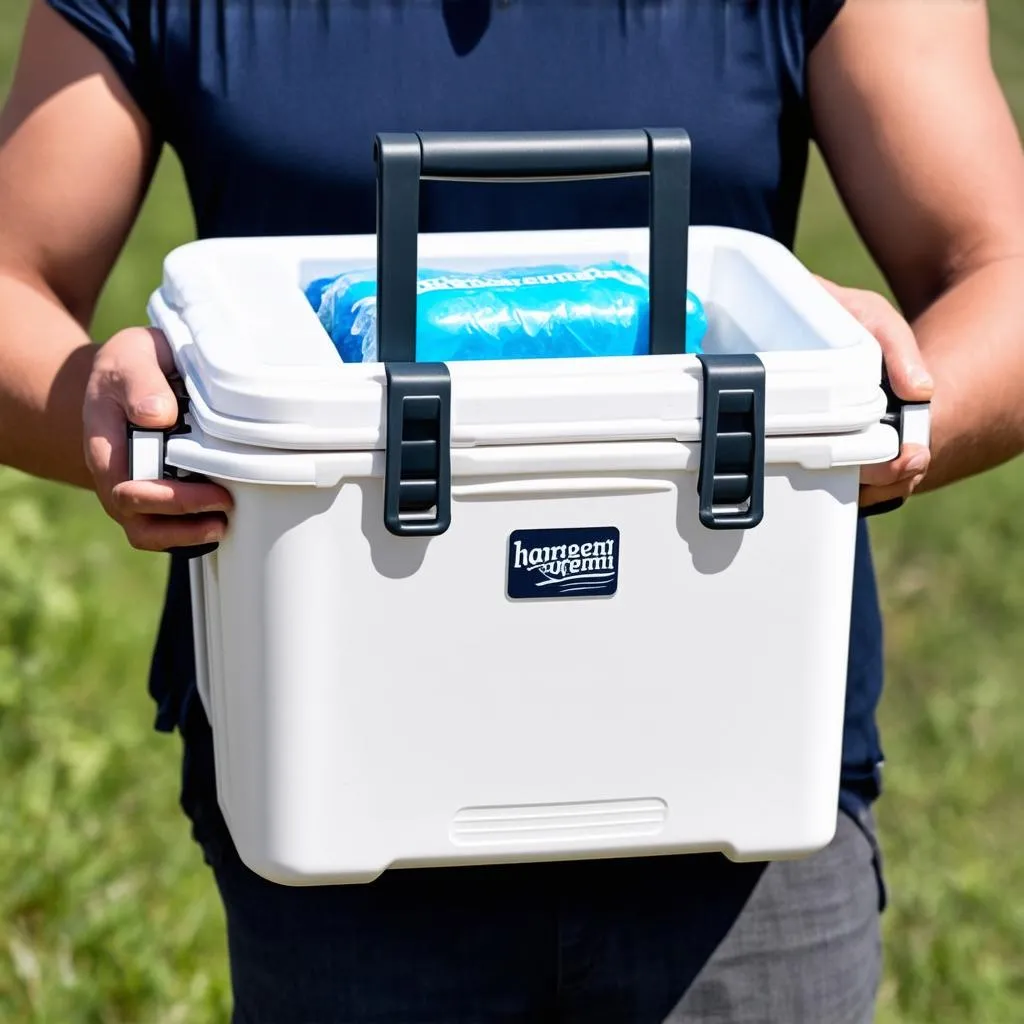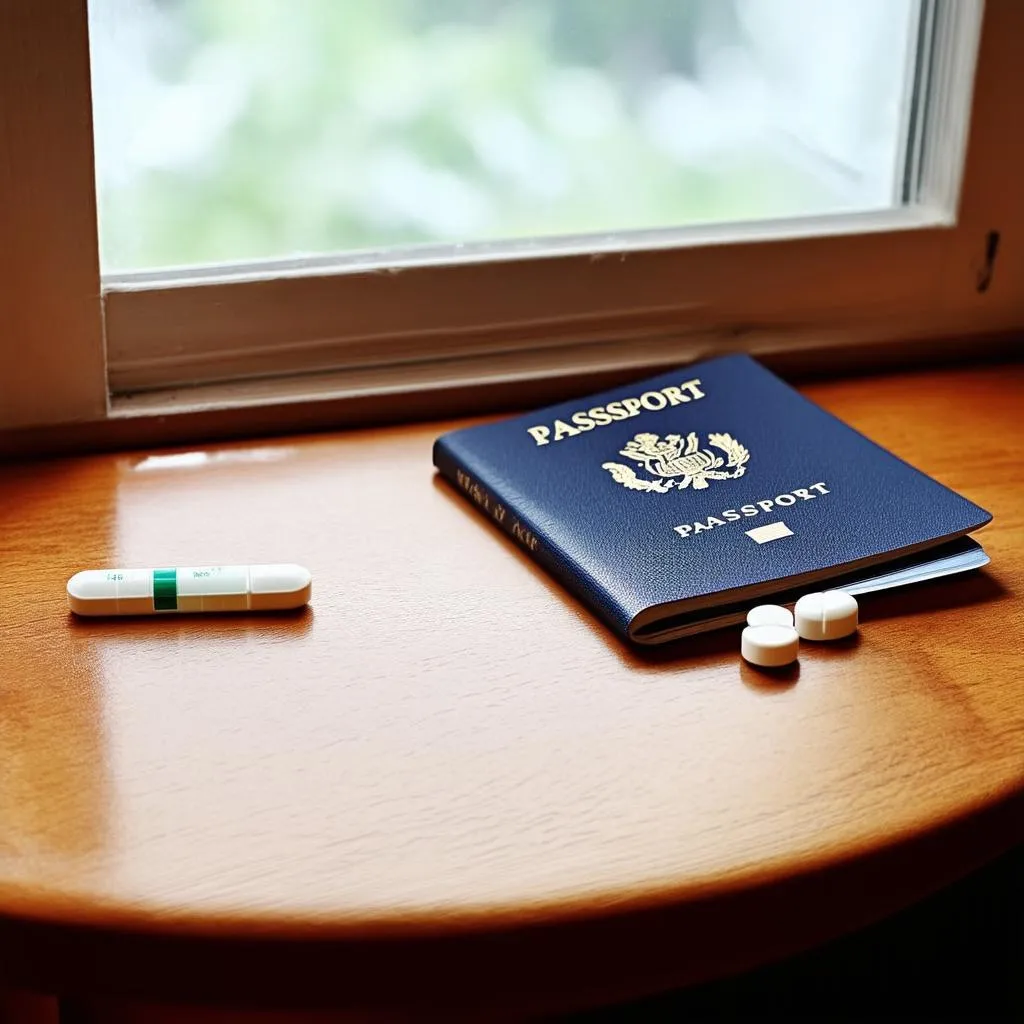Picture this: you’re all set for that dream vacation to Bali, tickets booked, bags packed, and itinerary brimming with temple visits and beachside relaxation. But wait! You realize you need to bring essential medication that requires refrigeration. Don’t fret! Traveling with temperature-sensitive medicine doesn’t have to be a travel nightmare.
Understanding the Challenges of Traveling with Refrigerated Medicine
Whether you’re flying from the bustling streets of New York City to the serene landscapes of Yosemite National Park, maintaining the right temperature for your medication is crucial. Here’s why:
- Temperature Fluctuations: Air travel, especially, exposes your medication to varying temperatures, from the airport tarmac to the airplane cabin.
- Security Checks: Going through airport security with refrigerated medication can raise questions and require additional screening.
- Destination Climate: Reaching your destination is just one part of the journey. The local climate at your destination plays a significant role in maintaining your medicine’s efficacy.
A Step-by-Step Guide to Traveling with Refrigerated Medicine
1. Consult Your Doctor and Pharmacist
Before you even start packing, your doctor and pharmacist are your best allies. They can:
- Advise on Transportation: They can tell you the best way to travel with your specific medication and provide recommendations for travel-friendly cooling options.
- Provide Documentation: A letter from your doctor explaining the necessity of your medication, especially for airport security, can save you a lot of hassle.
- Explore Alternatives: In some cases, they might suggest alternative medications or dosages that are more travel-friendly.
2. Choose the Right Travel Cooler
Investing in a reliable travel cooler is essential for maintaining your medicine’s temperature throughout your trip. Here’s what to consider:
- Type: Hard-sided coolers with insulation offer the best protection. For shorter trips, soft-sided coolers can work well too.
- Size: Choose a size that comfortably fits your medication and ice packs without wasting space.
- Features: Look for coolers with airtight seals, durable latches, and comfortable carrying handles.
 travel cooler
travel cooler
3. Pack Your Cooler Like a Pro
Proper packing ensures your medicine stays cool and secure. Follow these tips:
- Pre-Chill: Before packing, cool your medication and cooler in the refrigerator for at least 24 hours.
- Ice Packs: Use gel ice packs instead of loose ice as they last longer and prevent leaks.
- Organization: Keep your medication upright and secure with a small towel or bubble wrap.
- Label Clearly: Label your cooler clearly as “Medicine” and include your contact information.
4. Navigating Airport Security
Going through airport security with refrigerated medicine is easier than you might think. Here’s what to do:
- Separate for Screening: Separate your cooler from your other carry-on luggage.
- Inform TSA Agents: Notify the TSA agent that you’re carrying medication that requires refrigeration.
- Present Documentation: Have your doctor’s letter and prescription labels readily available for inspection.
5. Storing Your Medicine at Your Destination
Once you arrive, proper storage is key to maintaining your medicine’s effectiveness:
- Hotel Room: Most hotels will refrigerate your medication upon request.
- Refrigerator Access: If you’re staying in an Airbnb or vacation rental, ensure you have access to a refrigerator.
Tips for Stress-Free Travel with Refrigerated Medicine
- Plan Ahead: Don’t wait until the last minute. Start planning for your medication transportation well in advance of your trip.
- Check Airline Regulations: Airlines often have specific guidelines for traveling with medication. Check their website or contact them directly.
- Carry Extra Supplies: Pack extra medication, ice packs, and cooler accessories just in case of unexpected delays.
- Consider Travel Insurance: Travel insurance can provide coverage for lost, stolen, or damaged medication.
Frequently Asked Questions About Traveling with Refrigerated Medicine
Can I pack my refrigerated medicine in my checked luggage?
It’s not recommended. Checked luggage is exposed to extreme temperatures and rough handling, which could damage your medication.
Do I need a prescription for my refrigerated medicine when traveling internationally?
Yes, always carry your prescription, preferably with a doctor’s note explaining the need for the medication.
Can I use dry ice to keep my medication cold?
Dry ice is generally not permitted in carry-on luggage and has restrictions for checked luggage. It’s best to check with your airline.
What should I do if my medication gets too warm during travel?
Contact your doctor or pharmacist immediately for advice. They can guide you on the best course of action.
 a passport and medication are laying next to each other on a wooden table.
a passport and medication are laying next to each other on a wooden table.
Travelcar.edu.vn: Your Partner in Safe and Informed Travel
Planning a trip involves careful consideration of many factors, especially when you’re traveling with essential medication. At Travelcar.edu.vn, we’re committed to providing you with the information and resources you need to make your travel experiences smooth and enjoyable. Remember to check out our other informative articles on topics like “How to Travel with Dupixent” and “Can You Travel with Prescription Medicine?” to ensure you’re fully prepared for your next adventure.
By following these guidelines and tips, you can ensure your medication stays safe and effective, allowing you to relax and enjoy your journey. Safe travels!